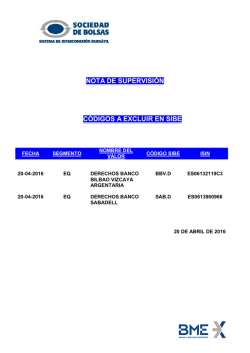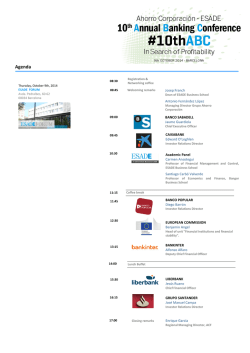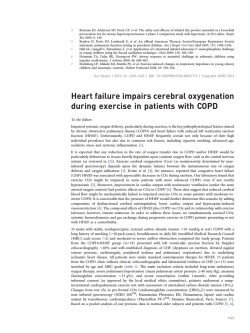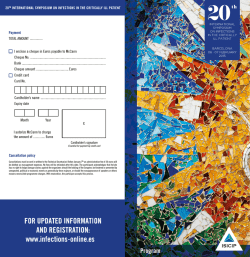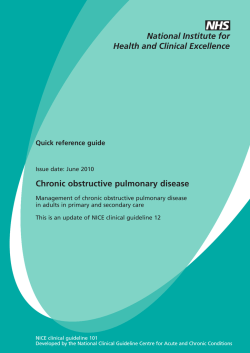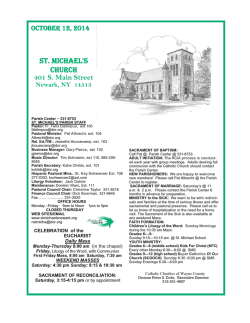
Descargar el archivo PDF
de Archivos de Bronconeumología Barcelona - Boston lung conference 2016 Órgano Oficial de la Sociedad Española de Neumología y Cirugía Torácica (SEPAR) VOLUMEN 3 · NÚMERO 4 · AÑO 2016 Functional Metagenomics of respiratory microbiome in exacerbated COPD ORAL COMMUNICATION Authors L. Millares, R. Ferrari, M. Gallego, V. Pérez-Brocal, C. Montón, X. Pomares, M. García, S. Capilla, M. Espasa, A. Moya, E. Monsó Fundació Parc Taulí. Sabadell, Spain CIBERES, CSISP-FISABIO. Valencia, Spain CIBERESP, Hospital Parc Taulí. Sabadell, Spain Correspondence Laura Millares Fundació Parc Taulí Parc Taulí, 1. 08208 Sabadell, Barcelona, Spain Tel.: + 34 93 723 10 10, ext. 22064. E-mail: [email protected] BACKGROUND The course of chronic obstructive pulmonary disease (COPD) is frequently aggravated by exacerbations. New molecular techniques have suggested that many bacterial groups, not only the common respiratory pathogens, could trigger the exacerbations. OBJECTIVE To analyze the microbial community and the gene content of samples obtained during stability and exacerbation of COPD patients. Method: 16S rRNA was pyrosequenced to obtain the taxonomic information. The metabolic information was obtained through shotgun metagenomics with MG-RAST server with KEGG database. RESULTS Eight severe COPD patients were included. At genus level, 68 different OTUs were found, Streptococcus and Haemophilus the most prevalent. No significant differences in the relative abundance of any of the de- 108 tected genera were found between stability and exacerbation. Bacterial biodiversity, measured with Chao1 and Shannon indexes, showed no statistical differences either. Beta-diversity analysis with the Bray-Curtis index showed that the microbial composition was not different in both clinical situations (Adonis test R2= 0.02 p= 0.955). In the MG-RAST analysis, at KEGG level 2, 36 functional categories were found, 4 of them with significant differences. Cell growth and dead and transport and catabolism decreased their abundance in exacerbation [1.6 (0.2-2.3) vs 3.6 (3.3-6.9) p=0.012 and 1.8 (0-3.3) vs 3.6 (1.8-5.1) p= 0.025] while cancer and carbohydrate metabolism were more abundant in exacerbation [0.8 (0-1.5) vs 0 (0-0.5) p= 0.043 and 7 (6.4-9) vs 5.9 (6.3-6.1) p= 0.012]. CONCLUSION The microbiome composition did not show differences between stability and exacerbation samples. However, during an exacerbation, increases and decreases in some functional pathways were observed, suggesting that this clinical situation is associated with an alteration in the functional activity of the bacterial community. Millares L, Ferrari R, Gallego M, Pérez-Brocal V, Montón C, Pomares X, García M, Capilla S, Espasa M, Moya A, Monsó E. Monogr Arch Bronconeumol. 2016;3(4):108
© Copyright 2026

